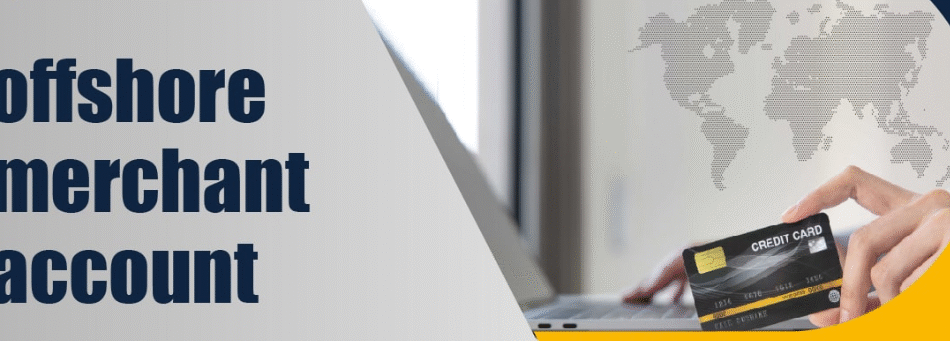Setting up an offshore company with merchant account can be a smart move for entrepreneurs and businesses looking to expand globally, reduce tax liabilities, and gain access to international customers. However, the process requires careful planning, a good understanding of legal regulations, and the right partners. This article will walk you through everything you need to know to successfully set up your offshore company with merchant account.
Contents
What Is an Offshore Company?

An offshore company is a legal entity incorporated in a jurisdiction outside of where its owners reside or conduct most of their business. These jurisdictions often called tax havens—offer business-friendly regulations, privacy benefits, and, in many cases, lower or zero corporate tax rates.
Some popular jurisdictions include:
- British Virgin Islands (BVI)
- Cayman Islands
- Belize
- Seychelles
- Panama
- Nevis
- Hong Kong
- Singapore
Setting up an offshore company with merchant account gives you the ability to accept credit card payments in multiple currencies, often without the heavy fees and regulations imposed by domestic banks.
Why Combine an Offshore Company With a Merchant Account?
There are several strategic advantages to pairing an offshore company with merchant account:
- Global Reach: Accept payments from international customers without geographical limitations.
- Tax Optimization: Leverage the low or zero-tax structures in offshore jurisdictions.
- Financial Privacy: Many offshore jurisdictions protect the confidentiality of shareholders and directors.
- Multi-Currency Processing: Handle payments in USD, EUR, GBP, and more.
- Higher Approval Rates: Offshore merchant account providers are often more flexible with high-risk industries.
Steps to Set Up an Offshore Company With a Merchant Account
1. Define Your Business Goals
Before you choose a jurisdiction or merchant account provider, clarify your objectives. Are you looking for tax savings? Better payment processing for a high-risk business? Privacy? Knowing your goals will help narrow down your options.
2. Choose the Right Jurisdiction
Not all offshore jurisdictions are created equal. Some offer better privacy, while others are more reputable and have double tax treaties with major countries.
Factors to consider:
- Political and economic stability
- Tax laws
- Privacy protection
- Reputability in the banking sector
- Ease of doing business
3. Register Your Offshore Company
Once you’ve selected a jurisdiction, you’ll need to incorporate your company.
Basic steps include:
- Choose a company name
- Appoint directors and shareholders
- Draft and file articles of incorporation
- Hire a local registered agent
- Pay government fees
You can hire a professional offshore service provider to handle all this paperwork and speed up the process of creating your offshore company with a merchant account.
4. Set Up a Corporate Bank Account
Most merchant account providers require that your offshore company has an operational business bank account in the same or related jurisdiction. This account will be used to receive and withdraw funds processed through the merchant account.
Documents typically needed:
- Certificate of Incorporation
- Memorandum and Articles of Association
- Passport copies and proof of address for all directors/shareholders
- Business plan and website URL
5. Select a Merchant Account Provider
Your offshore company with a merchant account will need a reliable provider to process payments. Some providers specialize in offshore and high-risk accounts.
Look for features such as:
- Multi-currency support
- Low processing fees
- Fraud protection tools
- Fast payouts
- High approval rates for offshore companies
Some well-known offshore merchant account providers include:
- Payoneer
- WorldPay
- PayCEC
- CardPay
- Allied Wallet
6. Submit Your Merchant Account Application
Applying for an offshore merchant account can be rigorous. You’ll need to submit a detailed application and supporting documentation.
Documents generally required:
- Company registration documents
- Corporate bank account details
- Passport and utility bill for owners
- Business model description
- Sales forecast
- Website with terms and conditions, privacy policy, and refund policy
7. Get Approved and Start Processing Payments
Once your application is approved, your merchant account will be set up. You’ll receive API credentials or a payment gateway integration for your website or app. Now your offshore company with a merchant account is ready to start processing payments worldwide.
Common Mistakes to Avoid
- Choosing the Wrong Jurisdiction: Just because a country has low taxes doesn’t mean it’s suitable. Consider legal, reputational, and banking implications.
- Inadequate Documentation: Missing or poorly prepared documents can delay or sabotage your application.
- Not Using a Professional Service: DIY is possible, but experienced consultants can save you time and costly mistakes.
- Ignoring Compliance Requirements: AML and KYC regulations still apply, even offshore. Stay compliant to avoid account freezes or legal issues.
How Long Does It Take?
Setting up an offshore company can take anywhere from 1 to 3 weeks depending on the jurisdiction. Securing a merchant account can take another 2 to 4 weeks. Altogether, you’re looking at about 4 to 6 weeks to become fully operational.
How Much Does It Cost?
Costs vary by jurisdiction and provider, but here’s a rough estimate:
- Company registration: $1,000–$3,000
- Registered agent & annual fees: $500–$1,500 per year
- Corporate bank account setup: $500–$1,000
- Merchant account setup: Free to $500, plus transaction fees (2.5%–5%)
Is It Legal?
Yes, forming an offshore company with merchant account is legal—as long as it’s not used for tax evasion or illicit activity. Work with reputable service providers and remain transparent about your business.
Industries That Benefit Most
An offshore company with a merchant account is especially useful for:
- E-commerce
- Forex and crypto trading
- Affiliate marketing
- Digital services and SaaS
- Online gaming
- Adult content
Final Thoughts
Setting up an offshore company with merchant account is a powerful strategy for global entrepreneurs. It offers privacy, financial flexibility, and access to markets that may be limited by domestic banking restrictions. But it must be done the right way—with careful planning, legal compliance, and expert support.
